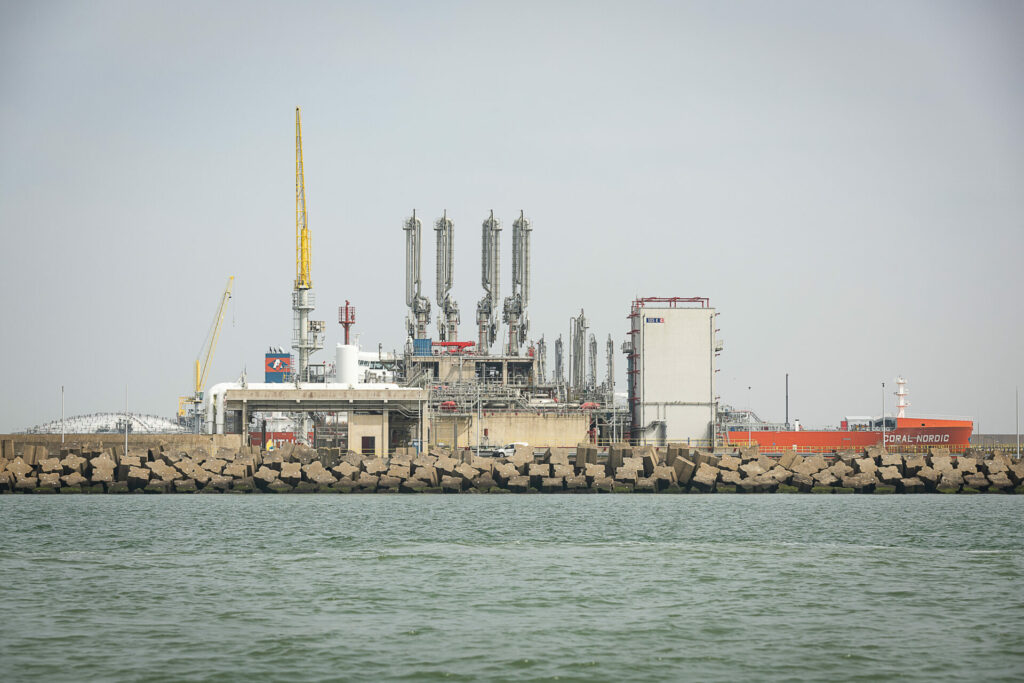A leading Brussels-based think tank has forecast that Europe will not experience an energy crisis this winter, arguing that the continent's successful diversification of gas imports has significantly reduced the likelihood of power outages as temperatures fall across the continent.
According to a study published by Bruegel on Tuesday, Europe's strengthened energy security is largely down to its sourcing of liquefied natural gas (LNG) imports to replace Russian pipeline gas following Moscow's full-scale invasion of Ukraine in February last year.
In particular, Bruegel noted that the bloc's overall LNG import capacity has risen by 20% in the first half of 2023 alone. As a share of total EU gas imports, LNG has doubled (from 20% to 40%) since 2019.
Importantly, the study highlighted an overall lower energy demand as a key reason that last year's energy crisis will not be repeated. Specifically, Bruegel reported that a 15% reduction in EU gas consumption, coupled with lower-than-expected LNG demand from China, has allowed Europe to reach its 90% gas storage target two months ahead of its original November deadline.
"The market outlook for the upcoming winter season in the EU looks positive," the study noted, adding that "current storage levels put the EU in a safe position" to avoid power cuts this winter.
'Europeans should not be complacent'
Despite its positive forecast, the study noted that European households and businesses are likely to face structurally higher energy costs for many years to come. It also warned that this could have an especially severe impact on European industry.
"Europeans should not be complacent," the study noted. "Fears about gas shortages or power cuts have receded but a gas price that is persistently higher than in other markets and ongoing price volatility could still have repercussions for the EU industrial structure and economy."
The study added that European wholesale gas prices have effectively doubled relative to US prices since Russia's invasion. It stressed that "maintaining current gas demand reduction remains critical" to ensure that costs do not rise even further.
Nord Stream all over again?
Bruegel emphasised that Europe's energy security depends on several other factors, including its ability to preserve key infrastructure from sabotage over the coming months.
"Europe's energy security during the winter also hinges on the integrity of its pipeline and LNG infrastructure," the study noted. "Sabotage or disruptions could have severe consequences. It is crucial to maintain a high level of alertness and security to safeguard these critical supply routes."
On Tuesday – the same day that the Bruegel study was published – the Finnish Government reported that a key underwater gas pipeline between Finland and Estonia had been damaged. European Natural gas prices subsequently surged by more than 12%, reaching their highest levels since March.
Prime Minister Petteri Orpo said that a "preliminary assessment" of the so-called Balticconnector pipeline suggested that the damage was "likely the result of external activity" – implying that it had been sabotaged.
Related News
- 'Deconstructing the obvious'? Seymour Hersh on why the US blew up Nord Stream
- UN Security Council turns down Moscow's request for independent Nord Stream inquiry
Orpo did not assign blame to any specific party for the damage. However, anonymous Finnish sources cited by the BBC suggested that it might be a form of "retribution" by Moscow for Finland's decision to join NATO following the invasion of Ukraine.
On X (formerly Twitter), NATO Secretary General Jens Stoltenberg wrote that the US-led alliance "stands ready to contribute to the investigation & support our Allies".
Spoke with Prime Minister @kajakallas of our Ally #Estonia on the damage to #Finland & Estonia's critical infrastructure. #NATO stands ready to contribute to the investigation & support our Allies. @EstonianGovt @TPKanslia
— Jens Stoltenberg (@jensstoltenberg) October 11, 2023
The likely sabotage of the Balticconnector follows the destruction of the Nord Stream pipelines between Russia and Germany in September last year. Western media outlets initially blamed Russia for the sabotage, although The New York Times later reported that "pro-Ukrainian group" may instead have been responsible.

